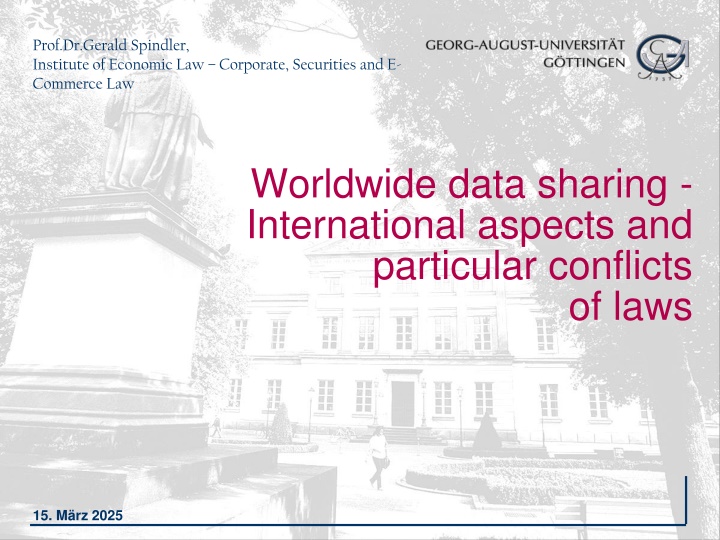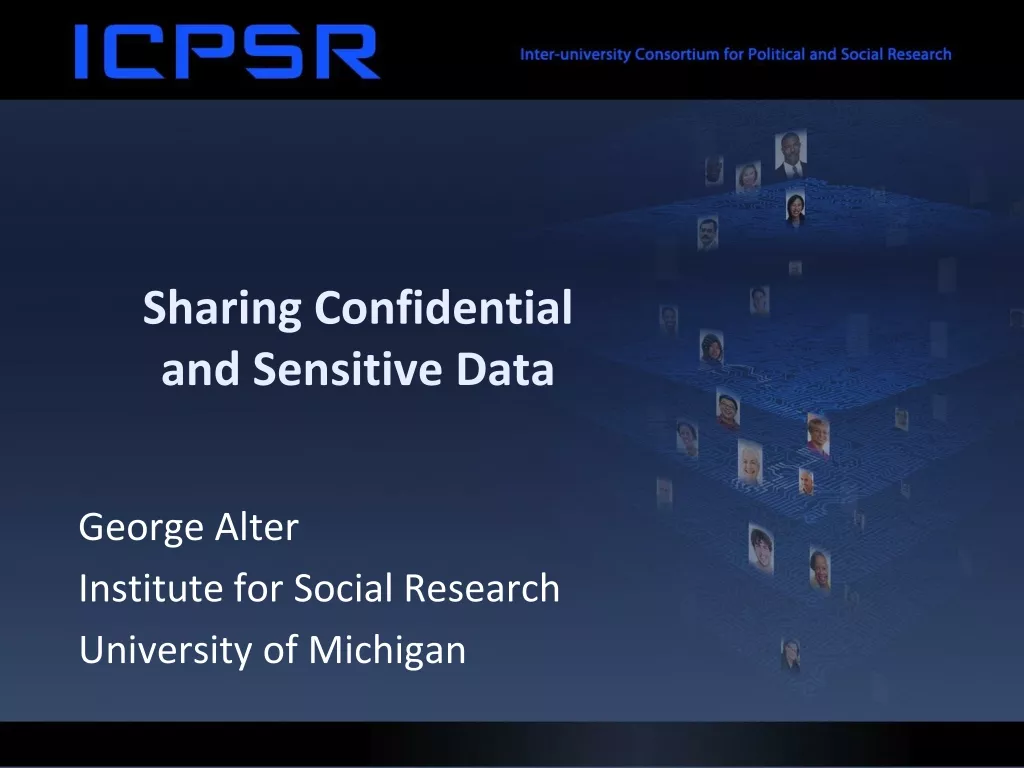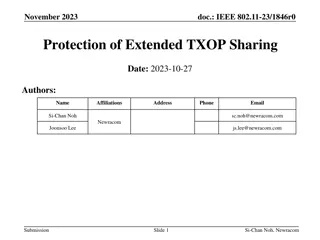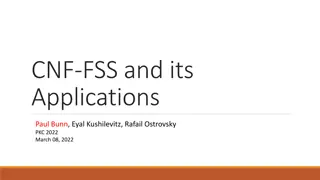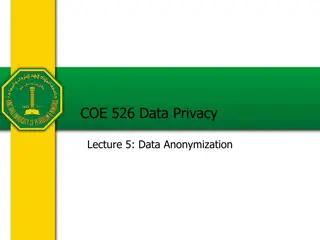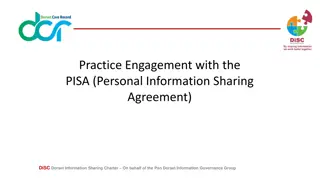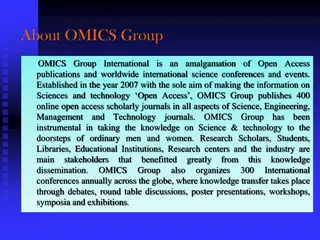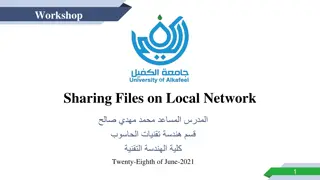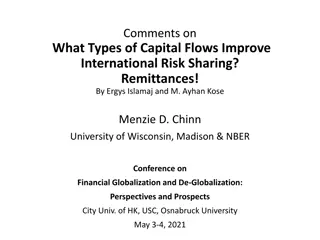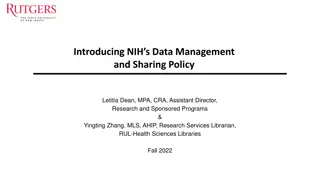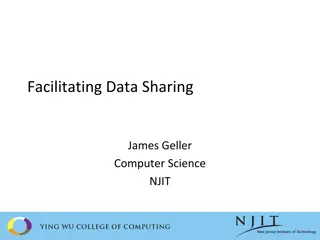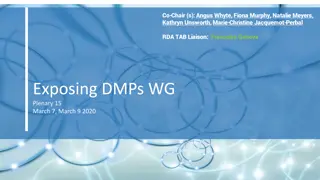International Aspects of Worldwide Data Sharing
Institute of Economic Law Corporate, Securities, and E-Commerce Law delves into conflicts of laws concerning data sharing on a global scale, emphasizing the legal basics, intellectual property rights, conflict of laws, and trade secrecy as they pertain to non-personal data protection and access rights.
Uploaded on Mar 15, 2025 | 1 Views
Download Presentation

Please find below an Image/Link to download the presentation.
The content on the website is provided AS IS for your information and personal use only. It may not be sold, licensed, or shared on other websites without obtaining consent from the author.If you encounter any issues during the download, it is possible that the publisher has removed the file from their server.
You are allowed to download the files provided on this website for personal or commercial use, subject to the condition that they are used lawfully. All files are the property of their respective owners.
The content on the website is provided AS IS for your information and personal use only. It may not be sold, licensed, or shared on other websites without obtaining consent from the author.
E N D
Presentation Transcript
Prof.Dr.Gerald Spindler, Institute of Economic Law Corporate, Securities and E- Commerce Law Worldwide data sharing - International aspects and particular conflicts of laws 15. M rz 2025
Institute of Economic Law Corporate, Securities and E-Commerce Law Basic background Non-personal data generated in industry, commerce, and (sometimes) by consumers Typical phenomenon: Industry multilateral relations (so-called Industry 4.0 ) by exchanging directly machine-machine-data (and processing it) Prof.Dr.Gerald Spindler, www.gerald-spindler.com 2 15. M rz 2025
Institute of Economic Law Corporate, Securities and E-Commerce Law Legal basics Different regime for protection of non-personal data Intellectual property rights, esp. Database Trade secrecy Contractual provisions Role of future Data Act different policy options Rules to enable access Fairness tests for standard terms and conditions or even every individually negotiated contract Prof.Dr.Gerald Spindler, www.gerald-spindler.com 3 15. M rz 2025
Institute of Economic Law Corporate, Securities and E-Commerce Law Conflict of laws Intellectual property rights If data would be protected as an IPR: Usually country of protection / territoriality applies, Art. 8 (1) Rome-II-Regulation If data is protected as part of a database protected by Database-Directive: same reasoning applies, Art. 8 (1), Recital 26 Rome-II-Regulation Also limitations (as provisions guaranteeing access to data) are governed by the country of protection respectively where the use of data has occurred (country of user, determined by place of infringement) Licence contracts are governed by Rome-I-Regulation (contractual part) as well as by Rome-II-Regulation (IPR-part) no choice of law concerning IPR part possible, Art. 8 (3) Rome-II-Regulation If machine generated data would be excluded from database then no conflict Either, mandatory limitations have to be introduced Prof.Dr.Gerald Spindler, www.gerald-spindler.com 4 15. M rz 2025
Institute of Economic Law Corporate, Securities and E-Commerce Law Conflict of Laws Trade secrecy Data as a trade secret Trade secrets as intellectual property rights according Art. 8 Rome II regulation? Or just normal property rights derived from unfair competition (Art. 6 (2) Rome-II-regulation? Or according to normal tort law, Art 4 Rome-II-regulation (dominant opinion) Hence, rights to access according to trade secret directive No real right to have direct access to data Disclosure of data unlawful Reengineering? Change eventually by Data Act introducing mandatory rights to access to data Data Access rights can be overriding only if they can be qualified as mandatory provisions (Art. 16 Rome-II Regulation) Prof.Dr.Gerald Spindler, www.gerald-spindler.com 5 15. M rz 2025
Institute of Economic Law Corporate, Securities and E-Commerce Law Conflict of laws: contractual regulation Rom I regulation applies even though data may come near to IPR-protection still data is not an IPR right In B2B-context freedom of choice of jurisdiction, Art.3 (1) Rom-I-regulation Hence, international data license contracts are mostly free to protect data and restrict access of third parties to data No application of (national) control of standard terms and condition However, can be restricted by Art. 9 (1) Rome-I-Regulation (ordre public) Data Act can change this situation by introducing mandatory control of terms and conditions in EU-Law However: what standards should be applied in order to determine asymmetry in contractual relations? Leave it to courts? Or guidance by EU-Commission? Such as black list in Unfair commercial practices-directive 2005/29/EC? Prof.Dr.Gerald Spindler, www.gerald-spindler.com 6 15. M rz 2025
Institute of Economic Law Corporate, Securities and E-Commerce Law Conflict of laws: antitrust law Antitrust law may provide for access to data for third parties Essential facilities (CJEU 29.3.2004 C-418/01 IMS Health) Dominant market power Upcoming Digital Markets Act Applicable to all transactions with effect in the EU market, Art. 6 (3) Rome-II-Regulation But not guaranteeing a general right for third parties to access data Prof.Dr.Gerald Spindler, www.gerald-spindler.com 7 15. M rz 2025
Institute of Economic Law Corporate, Securities and E-Commerce Law Special situation: close industrial relationships Close multilateral industrial relationship ending up in sharing data for a common purpose may be qualified as implied concluded partnerships Conflict of laws concerning partnership: Headquarter doctrine still prevalent (however, heatedly debated) Data as a common property of the partnership Hence. Access available for all partners But no implications for access of third parties Law governing the partnership could determine these access rights A Data Act may overcome these limitations by granting a mandatory right Prof.Dr.Gerald Spindler, www.gerald-spindler.com 8 15. M rz 2025
Institute of Economic Law Corporate, Securities and E-Commerce Law Expanding Data Access Blue Print: GDPR and market impact approach Core issue: like in the GDPR how to assess adequacy of third states provisions on data access? Model clauses? Consequence: Prohibition of transferring data to third states without ensuring access rights? Prof.Dr.Gerald Spindler, www.gerald-spindler.com 9 15. M rz 2025
Institute of Economic Law Corporate, Securities and E-Commerce Law Conclusion Most of international problems / conflict of laws can be overcome by introducing mandatory access rights and mandatory control of standard terms and conditions However, assessing fair standards for contracts Establishing adequacy terms for third states Prof.Dr.Gerald Spindler, www.gerald-spindler.com 10 15. M rz 2025
